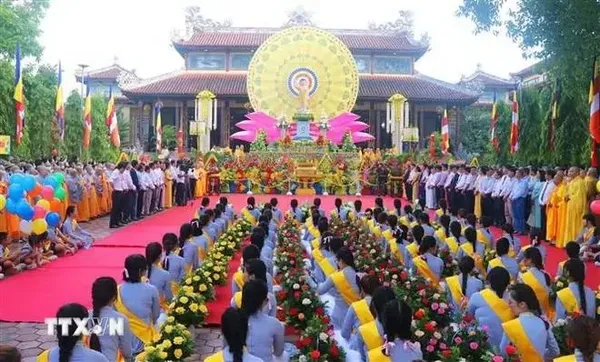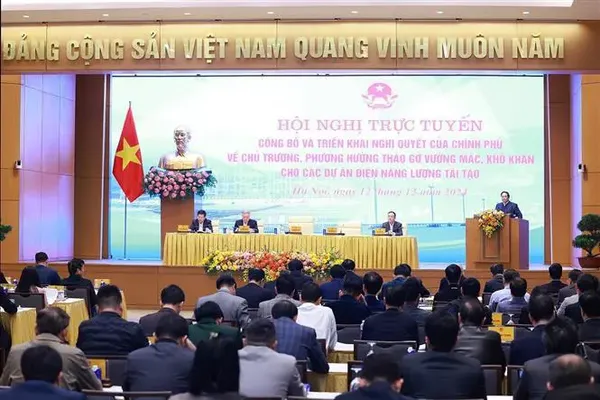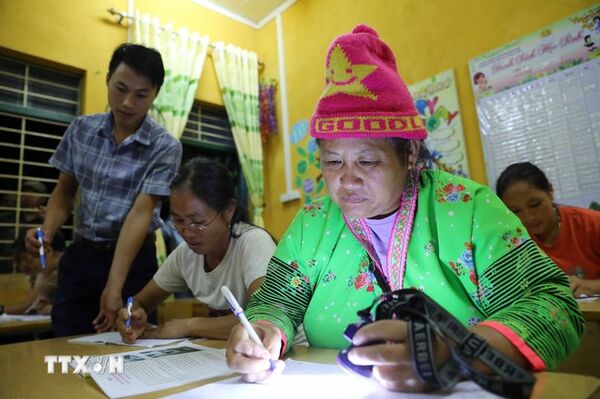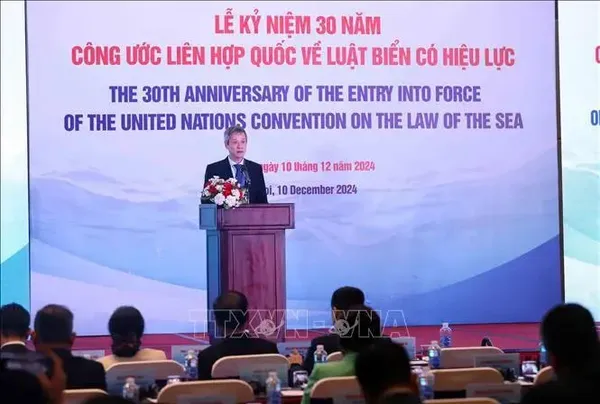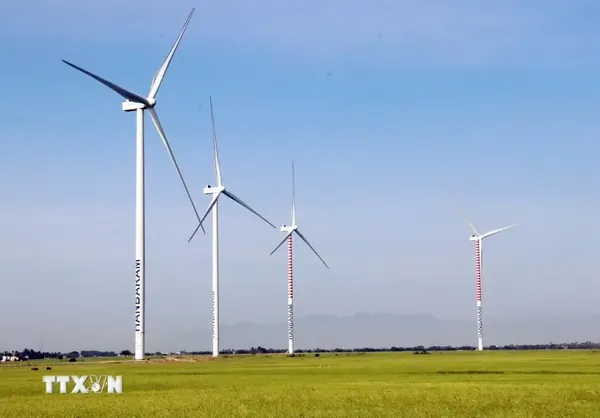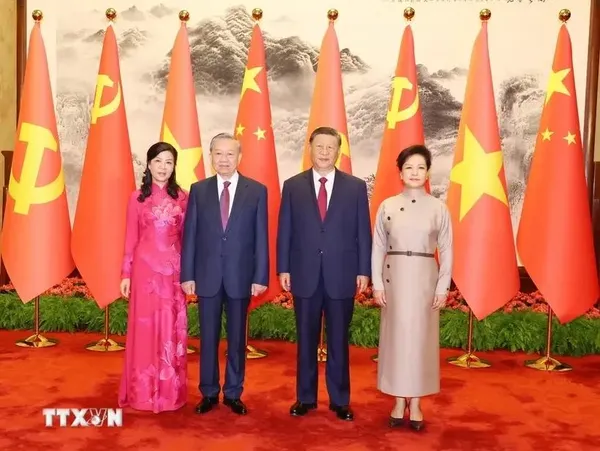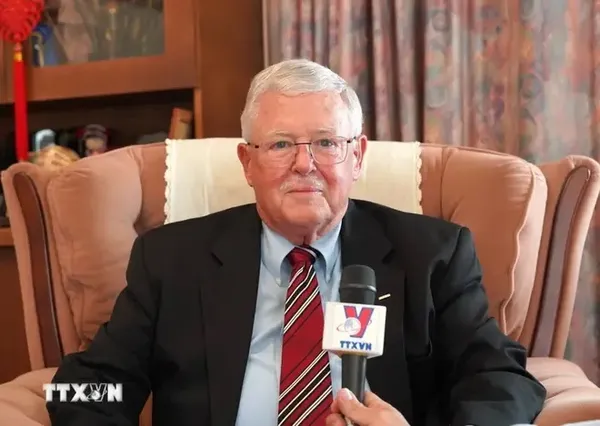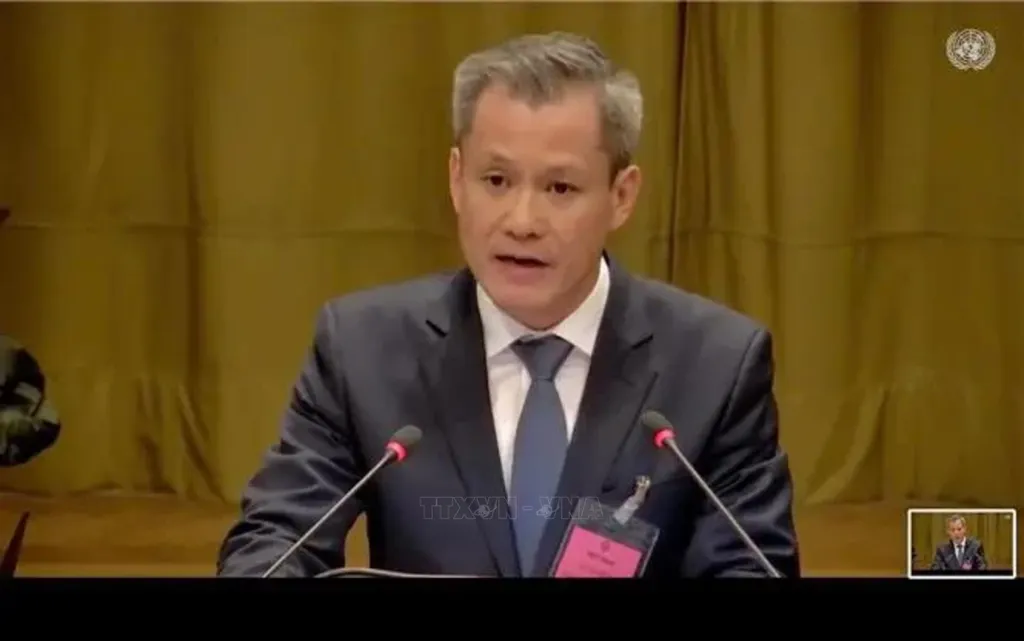 |
| Nguyen Dang Thang, Director General of the Ministry of Foreign Affairs’ Department of International Law and Treaties speaks at the session. (Photo: VNA) |
Hanoi (VNA) – Countries have the obligation to prevent significant harm to the climate system, cooperate internationally, and adhere to the principle of "common but differentiated responsibilities" in determining their duties, the Vietnamese delegation remarked while attending a session held by the International Court of Justice (ICJ) in The Hague, the Netherland, from December 2 to 13.
The event was organised to listen to countries and international organisations' viewpoints on national responsibility for climate change response. The Vietnamese delegation, led by Nguyen Dang Thang, Director General of the Ministry of Foreign Affairs’ Department of International Law and Treaties, presented its views before the ICJ on December 12.
Vietnam stressed the responsibilities of countries in this realm based on international treaties, such as the United Nations Framework Convention on Climate Change, Kyoto Protocol, the 2015 Paris Agreement, and the 1982 UN Convention on the Law of the Sea (UNCLOS).
It held that all countries share the responsibility for mitigating climate change. However, this responsibility must take into account their differences in emission histories and national capabolities. Developed countries, as major emitters, should cease harmful activities and be responsibile for the damage they caused.
Vietnam also proposed that those heavily affected by climate change, especially developing nations, should be consulted to identify their needs and implement settlement measures. These efforts include financial support, capacity building, and technology transfer to restore the environment and enhance resilience.
Vietnam is part of the core group of 18 countries, initiated by Vanuatu, which advocated the adoption of Resolution 77/276 by the UN General Assembly on March 29, 2023. This resolution calls on the ICJ to provide advisory opinions on the national obligations to protect the climate system and the legal consequences of inaction.
Vietnam has worked closely with Vanuatu and ASEAN members to organise seminars and build arguments to support the region in the ICJ process.
Prior to the presentation event, it had submitted its national statement and written comments to express its official stance, marking the first time it has fully participated in the procedure for seeking the ICJ's advice.
According to the ICJ Secretariat, this case is the largest in the court's history, with over 90 countries and international organisations submitting national statements and more than 100 parties participating in the presentation session.
While in the Hague, the Vietnamese delegation also held meetings with the Permanent Court of Arbitration (PCA) and the Hague Academy of International Law to discuss future cooperation, focusing on support for training and enhancing Vietnam's capacity in international law./.

